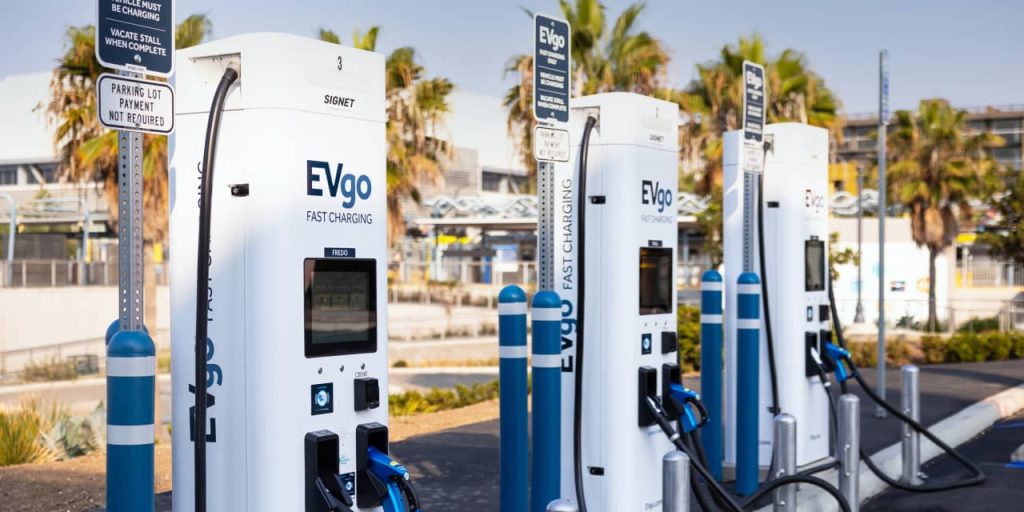Electric-vehicle charging network investors got some relief Wednesday after better-than-expected earnings from
EVgo
and a bonus update from
ChargePoint Holdings.
Wednesday, EVgo (ticker: EVGO) announced a third-quarter adjusted earnings before interest, taxes, depreciation, and amortization, or Ebitda, loss of $14.2 million on sales of $35.1 million. Wall Street had expected an Ebitda loss of $18.6 million on sales of about $30 million, according to FactSet.
EVgo’s full-year Ebitda guidance is now for a loss of about $64 million. Prior guidance called for a loss of about $73 million. New guidance implies a fourth-quarter Ebitda loss of about $17 million, while Wall Street had projected an Ebitda loss closer to $18 million.
What’s more, EVgo has some 3,400 charging stalls in operation or under construction, up 31% year over year.
Shares were up almost 16% in early trading while the
S&P 500
and
Nasdaq Composite
were both up about 0.2%.
Part of the reason for the strong reaction is the starting point. EVgo stock is still down some 46% over the past three months. Investors have become worried about EV growth following disappointing earnings from
Tesla
(TSLA), and decisions by
General Motors
(GM) and
Ford Motor
(F) to delay some EV-related spending.
The EVgo results are encouraging. Network throughput—the amount of juice EVs drew from EVgo charging stations—in the third quarter was 37 gigawatt-hours. That’s up from 24.9 gigawatt-hours in the second quarter.
What’s more, ChargePoint (CHPT) announced it reached one million quarterly active users—drivers accessing ChargePoint chargers—in the third quarter.
That’s a record, but year-over-year growth isn’t cited in the news release. ChargePoint didn’t immediately respond to a request for comment.
ChargePoint stock opened higher, but gains faded, leaving shares down 1.4% in morning trading.
Tesla stock, which is the bellwether for EV sentiment, is down 0.5% in early trading. At about $220, the stock was still up 10% for the month but that leaves it down roughly $30 away from levels just before the company reported disappointing third-quarter delivery figures on Oct. 2.
Investors are nervous but so far in 2023, battery-EV sales have accounted for roughly 16% of all new car sales in the U.S., Europe, and China, according to data from PwC. That’s up from about 13% a year ago.
What investors really want to know is how 2024 will turn out for EVs.
Write to Al Root at [email protected]
Read the full article here
